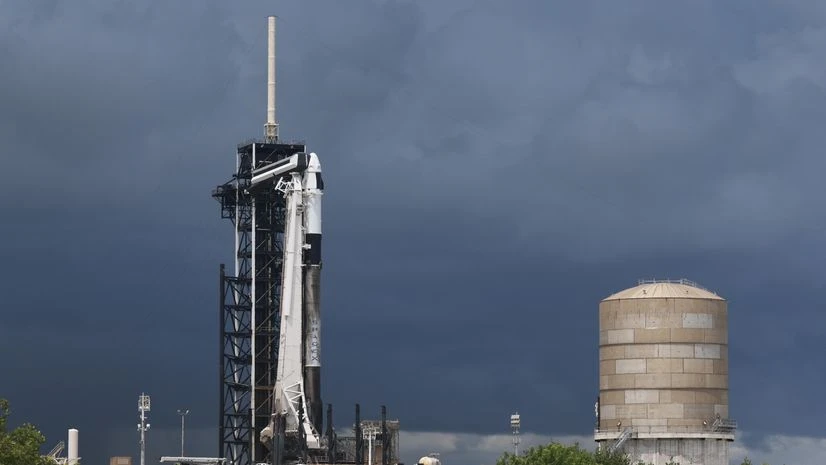)
It’s unclear how SpaceX plans to incorporate spacewalking into future missions. Image: Shutterstock
SpaceX has delayed the launch of a rocket carrying four private astronauts to space, part of a groundbreaking mission aimed at performing the world’s first commercial spacewalk.
The launch, initially scheduled for early Tuesday morning, was scrubbed to check a ground-side helium leak, one of SpaceX’s two lead engineers, Sarah Gillis, said in a post on X. The next launch window is no earlier than Aug. 28, SpaceX said.
On board the mission, called Polaris Dawn, is billionaire Jared Isaacman, who previously flew to orbit with SpaceX in 2021 and provided funding for the flight and its development. Flying with him are the two lead SpaceX engineers, Gillis and Anna Menon, as well as Isaacman’s friend and former Air Force pilot Scott “Kidd” Poteet.
The signature moment of the mission is set to occur on the third day of flight, when Isaacman and Gillis plan to step outside of an open hatch on their Crew Dragon spacecraft and each perform a spacewalk. The two will go out one at a time for about 15 to 20 minutes each while tethered to the vehicle.
It’s unclear how SpaceX plans to incorporate spacewalking into future missions, but the company is eager to test out the new capability.
“I think we’ll be really interested to see where the company does take it,” Gillis said in an interview prior to launch. “Obviously, this is the first step, and this is a really important step.”
Subscribe to Business of Space: The inside stories of investments beyond Earth, from satellite networks to moon landings. Delivered weekly.
While only Gillis and Isaacman will be leaving the spacecraft, the entire crew will be wearing SpaceX’s new space suits, as the full interior of the Crew Dragon will be exposed to the vacuum of space for the maneuver. The entire procedure, from venting out the atmosphere of the spacecraft to re-sealing the vehicle, should take about two hours.
Though the main focus of the mission will be on the spacewalk, Polaris Dawn plans to perform a number of secondary objectives, as well as break some spaceflight records. The first phase of flight will see the Crew Dragon spacecraft reach a height of 870 miles (1,400 kilometers) above Earth, making it the farthest humans have flown into space since the Apollo astronauts reached the moon. If the mission is successful, both Menon and Gillis will hold the record for women who have traveled the farthest from Earth.
Because of the distance the crew is traveling, they’ll be exposed to a much higher radiation environment than what most astronauts experience while traveling to the International Space Station in low-Earth orbit. That will allow SpaceX to collect critical research about how the space environment affects the human body.
Additionally, SpaceX also plans to perform an in-flight demonstration of its Starlink service. A mounted “plaser” inside the spacecraft will attempt to connect with Starlink internet satellites, to test out connectivity that future missions might use.
The entire Polaris Dawn mission should last roughly five days before the crew returns back to Earth, splashing down off the coast of Florida.
First Published: Aug 27 2024 | 10:24 AM IST


































